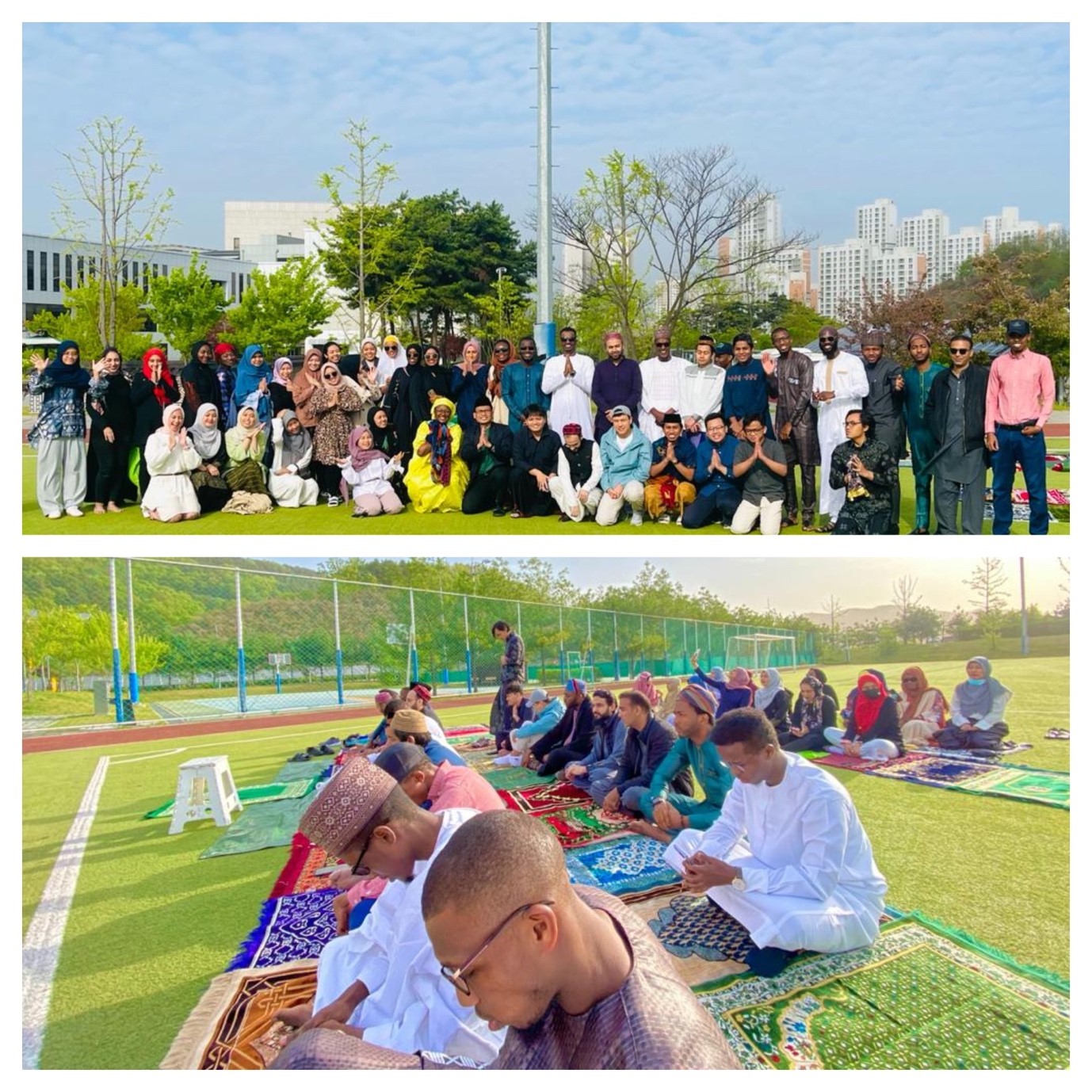
KDI School Muslim Students Celebrate Eid Al-Fitr and Eid Al-Adha Festivities, 2023
- Date 2023-07-19 00:00
- CategoryStory
- Hit1049
As a Muslim student living in Korea, I have had the opportunity to experience two Eid celebrations so far: Eid al-Fitr in the Spring and Eid al-Adha in the Summer semester. Even though there are relatively few Muslims in Korea, the KDI School Muslim Community as well as the Korean Muslim Federation (KMF) made the experience feel close to home. We celebrated as a growing diverse community of students from different ethnicities and continents united under the umbrella of faith and pursuit of higher education in Korea.

For the Muslim faithful, there are two Eids in an Islamic year: Eid al-Fitr marks the end of the holy month of Ramadan, where Muslims abstain from food and drink from dawn to sunset for 30 days, while Eid al-Adha is celebrated on the 10th day of the last month of the Islamic calendar. This is in time to commemorate the sacrifice of Prophet Ibrahim (Abraham) and his son Isma’ili (Ishmael). Eid al-Adha is also a time for Muslims to perform the Hajj, the annual pilgrimage to Mecca. Both Eid celebrations are celebrated globally, and Muslims come together to pray, feast, and celebrate.

In Korea, the celebrations are made the same way as they are in other parts of the world. Before the date, Muslims are advised to take part in good deeds, pray more, and give to the needy and those who may not have enough to celebrate with. It is a means of expiating sins and bringing good fortune to one’s household.

On the morning of the Eid celebrations, we dressed in our native country’s attire, gathered at designated open spaces to offer prayers, and listened to sermons made by the prayer leader (Iman). After prayers, we gave out warm hugs, took pictures, and sent prayers and well wishes to our loved ones and family. We then retired back to the dormitories to enjoy dishes and drinks prepared for the occasion, such as sweet pastries, fruits, rice, beef, lamb biryani, and chicken curry.

For Eid Fitr, I had bits of many things, including food from countries like Gambia, Senegal, and Somalia. We also invited non-Muslim friends and colleagues to join the feast. During events like this, we share moments with non-Muslim friends to promote interfaith dialogue and tolerance.

Back in Nigeria, it is also a time of gift-giving. Muslims traditionally exchange gifts in the form of cash, toys, or clothing with their loved ones and siblings, especially if they participate in the preparations of the feast. it's almost resembling the Seollal (Korean New Year celebrations) learned from my Korean Language and Culture 1 class. On days like this, I make sure to be available to entertain guests and friends at my residence. For most Muslim-dominated countries, it is declared a national holiday; there is no need for school or work on such dates. The following few dates are considered continued celebratory dates for outdoor activities and more feasts.

In general, I believe that besides the celebrations, Eid is also a time for reflection, within oneself, relationships with friends, and neighbors, and ultimately with one’s creator. As we celebrate Eid, let us remember the importance of flourishing community and tolerance. I will say that my experience of Eid celebrations in Korea has been a positive one. I have been able to find a sense of belonging with other Muslim students, and I have also been able to learn more about Korean culture as well as other cultures from other countries.
2022 Fall / MPM / Nigeria
rilwan.sholanke@kdis.ac.kr
